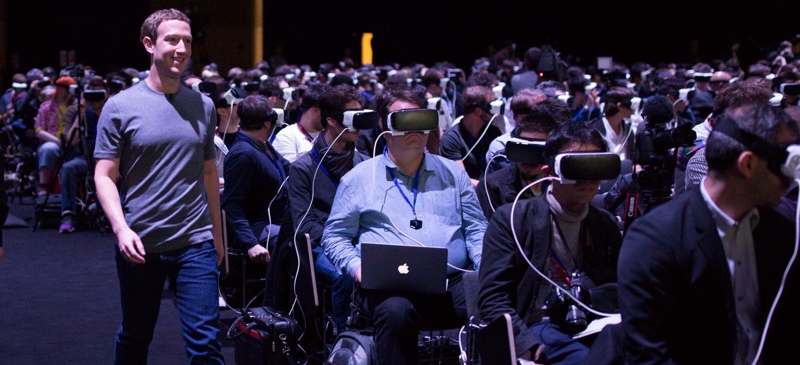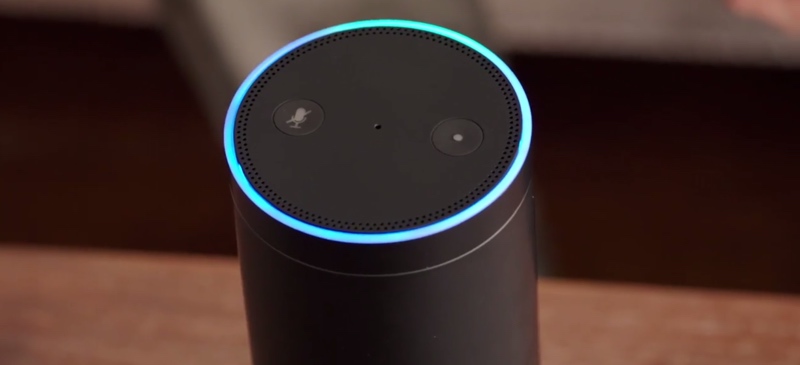Each December going back to 2004, I’ve done a year in review blog post about technology. This year I’m focusing on technology trends rather than specific products. But I’ll mention many of my favorite tech products as part of the review.
In time, we may look back on 2016 as the beginning of the big shift away from mobile phones. Why? Because much of the innovation in 2016 happened in product categories like Virtual Reality, Artificial Intelligence, Automation, Wearables, and Internet of Things (IoT). In those categories, the mobile phone typically isn’t the primary device (although it’s often a supporting or connecting device – at least for now). In VR, headsets such as Oculus Rift or HTC Vive are the primary devices. With wearables and IoT, the primary device is either attached to our body or integrated into our environment. And while consumer AI is sometimes phone-based (for example, Siri), usually it’s either device-less (like IBM Watson) or a bold new type of device (like the Amazon Echo). As these trends continue to evolve, eventually we won’t need smartphones at all. But I’m getting ahead of myself. Let’s look at the trends of 2016 that started this gradual shift…
1. Virtual Reality Becomes Reality

After decades of hype, 2016 was the year that VR arrived as a consumer product. Three major VR headsets were released this year: Facebook’s Oculus Rift in March, the HTC Vive in April, and Sony’s Playstation VR in October. All helped make VR a reality this year. On the down side, we learned over 2016 that compelling VR content hasn’t arrived yet. Especially if you weren’t already an avid gamer. Also the level of presence – that feeling of truly believing you’re in an alternate reality – has a long way to go for the current crop of devices.
But at least VR is a real, commercially viable technology now. Not to mention it has inspired certain science fiction authors to speculate about where it might take us in the future.
2. Conversing With Artificial Intelligence

AI has been evolving at a steady clip for many years now, but until now there hasn’t been a breakthrough consumer AI product. In 2016 it became clear that Amazon Echo was that product; it was released outside of the US for the first time this year. The idea is that you talk to the Echo device via a voice service called Alexa (Amazon calls Alexa “the brain behind Echo”). This may prompt comparisons to the infamous movie AI, HAL 9000, in Stanley Kubrick’s movie 2001: A Space Odyssey. Luckily, so far there haven’t been any reports of a rebellious Alexa, although it did make a couple of guest appearances this year in the dark (and brilliant) tv show Mr Robot.
Alexa is a form of intelligent assistant, a product type that Google, Facebook, Microsoft and others are all exploring. A related trend over 2016 was the rise of ‘chatbots,’ which are integrated into Instant Messaging apps. What they have in common with Alexa is their conversational interface. Facebook began experimenting with chatbots this year in the Messenger app, in an attempt to catch up to its more sophisticated Asian competitors.
3. Social Media Jumps The Shark

2016 was the year “selfish media” finally went too far. Whether it was fake news, filter bubbles that prevent people from seeing (let alone understanding) other viewpoints, over-sharing people dominating our feeds, the outrage culture that permeates the media, or simply the overwhelming flow of blinkered opinions we get every day on social media… I’ve had enough. I’ve already begun to dial down my social media consumption.
It’s not all bad, of course. I still enjoy keeping in touch with family and friends on Facebook, and Twitter is useful for tracking narrowly defined interests. But social media proved in 2016 that it is not a viable news platform – at least if we want truthful and open-minded discussions. Bring back blogs in 2017?
4. Society Begins To Tackle Automation

We’ve only just started the conversation about how to transition to an economy which is heavily automated. In 2016, there were multiple warning signs of the potential impact. Take Uber, for example. The popular ride-sharing app began actively trialling driverless Uber cars in 2016. It’s likely that Uber’s driverless car fleet will eventually take the jobs of tens of thousands of human drivers – and that could easily happen within a decade. What will all those drivers do next?
This conversation is less about the technology itself, than it is about finding solutions to what automation will do to our working culture. That could mean implementing a Universal Basic Income, or people becoming more creative in how they earn an income. We don’t yet know how to deal with increasing automation. But it’s an important topic and in 2016 we, as a global society, at least started talking about it.
5. Pokémon GO & The Dawn of Augmented Reality

I couldn’t do a review of 2016 without mentioning Pokémon GO, which had an extraordinary burst of popularity over July and August. Without a doubt the killer app of this year, Pokémon GO brought Augmented Reality (AR) into the mainstream. At one point it seemed like every kid in my city was chasing cartoon characters down the street. And the irony, at least for me? Pokémon GO was a smartphone app. So mobile phones are not dead yet!
Conclusion
Ultimately, I think Pokémon GO was an outlier this year. I look back on 2016 as the year in which Internet technology went well beyond our mobile phones. Whether it was VR headsets in our lounges, Alexa in our living rooms, or driverless cars being tested on our roads, 2016 expanded the scope of what it means to be ‘online’ (or ‘invirt’ as I put it in my VR novel). I expect to see more of this expansion in coming years.
So when will the smartphone lose its status as our primary Internet device? Probably not for many years. However, perhaps this generation of teenagers will be the last to walk around with their necks craned downwards, staring at a small rectangular screen.
Lead image: Wired


Hi Richard. I agree with all your tech observations. 2017 will see AR/VR go mainstream. Social media is quickly becoming passé. The kids have moved to snapchat. Us oldies remain on Facebook. Women more on Pinterest or Instagram. I find myself reading more indepth blog posts via medium. Twitter is totally dead to me and has been for some years. It’s a soap box for people to shout out but little in the way of conversation. I am excited that the W3C just accepted PubSub (a realtime RSS). And can see a return to thoughtful posts that over come the attention noise. I think tech will flat line for a few years while Brexit/Trump settles down while UBI is considered and 5G ratified and rolled out.
Thanks Sam, interesting thoughts.